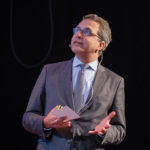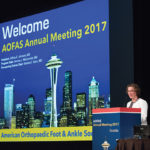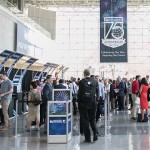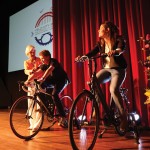
These topics included extrasensory perception, psychokinesis, psychic healing, and possible survivorship of bodily death. It was the 56th Annual Convention of the Parapsychological Association (PA) — an international professional organization of scientists and scholars engaged in the study of “psi” (psychic) experience.
Challenges
While meeting attendance usually ranges from 80 to 110 professionals, volunteers, and speakers, this year’s numbers were a bit lower than PA Executive Director Annalisa Ventola expected. “The Lazio region of Rome was experiencing a heat wave and our accommodations were not air-conditioned,” she said, “so that may have discouraged last-minute attendees.” Additionally, the small-town location might not have been as appealing for international travelers as some of PA’s past meeting locales — including Paris in 2010.
As with many international meetings, language barriers are a concern for Ventola and her all-volunteer Convention Committee both during the planning process and at the event itself. Several team members spoke Italian. “However,” Ventola said, “two of my key volunteers were unable to stay for the convention, and that would occasionally put me in the position of conversing with the locals and hotel staff members on my own.” Vento-la’s 20 hours of traveler’s-Italian study helped out some. “Once the [hotel] staff caught on that I knew some Italian, they started speaking directly to me,” she said. “I found myself in many conversations where we were all putting our best English and our best Italian to use.”
International meetings also tend to illuminate cultural differences. PA’s Spanish and Italian attendees, for example, were surprised that dinners were scheduled for 7 p.m., because they’re accustomed to eating much later. The rest of the group was surprised when each meal took more than two hours, served one course at a time and allowing for space between courses. “At first, I thought that this might be because [the kitchen] was overwhelmed and understaffed, but throughout the week I learned that this was the timing of meals whether there were 10 of us or 70 of us,” Ventola said. “Our solution was not to rush the kitchen, but to alter the program.”
Initiatives
Simon Thorpe, research director of the Brain and Cognitive Research Center at the National Center for Scientific Research in Toulouse, France, was a speaker and guest at a dinner in his honor on the second night of the conference. In his presentation, “Where Does Consciousness Come From?,” Thorpe discussed why he believes that people soon will be forced to admit that “there is more to consciousness than just neuronal activity,” according to his speech abstract.
Thorpe’s presentation came after an awards ceremony honoring several PA members and a student for their contributions to the parapsychological discipline. “After his talk, the discussion moved out onto the front patio,” Ventola said. “Dr. Thorpe chatted with students and colleagues well into the night.”
Convene’s Pre-Con/Post-Con series asks meeting planners about their challenges and how they intend to address them (Pre-Con), and then circles back around after the meeting has occurred (Post-Con) to see how well they worked out.



